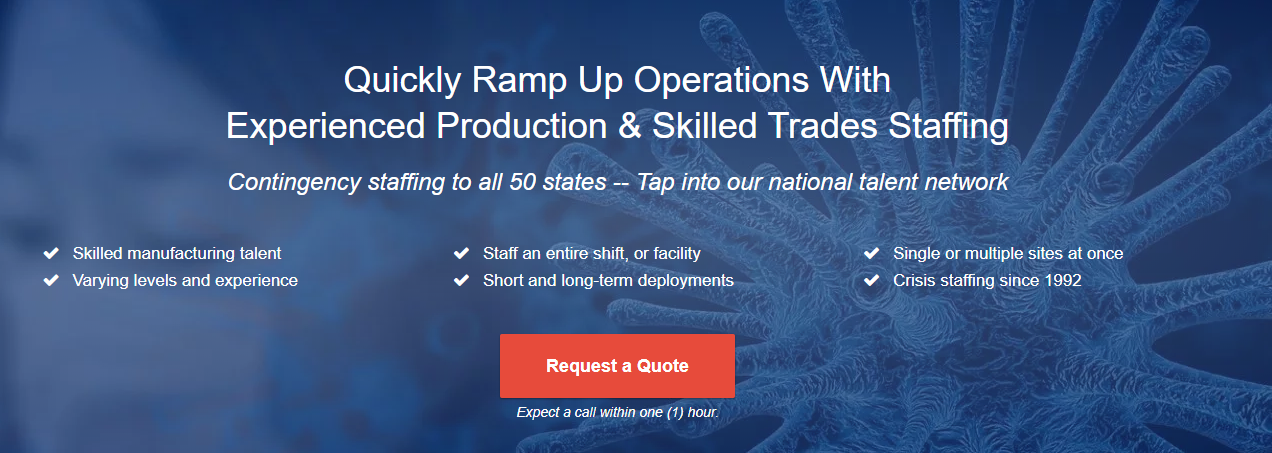Businesses worldwide are experiencing tests to their business continuity plans on an unprecedented scale as a result of the coronavirus.
Throughout the world, companies will see some type of disruptions to their business and supply chains as a result of the coronavirus. Many have already seen a substantial impact such as the tech, health care, travel, and consumer goods sectors. In particular, industries with tight global supply chains, such as the automotive industry, are especially concerned and companies are even preparing war rooms and initiating contingency plans such as airlifting parts as the coronavirus spreads.
The Impact of Coronavirus On Manufacturing Supply Chains
Reports on how COVID-19 is impacting manufacturing supply chains and disrupting business operations around the globe are increasing daily. The Harvard Business Review is predicting the peak of the impact on global supply chains will occur in mid-March. Others are predicting the peak to be sometime in April or May. Supply chains that are most vulnerable are those which rely heavily on China for parts and ingredients. One of the main reasons supply chains are being impacted is because the Chinese government quarantined almost half of its population; as a result, transportation and manufacturing have drastically fallen over the past month and it's only expected to continue.
Labor Shortages In China
A recent NPR article highlights the dire impact COVID-19 has had on China's labor supply causing many production lines to shut down temporarily and in some cases, preventing them from being able to ramp their production back up to normal. One Foxconn production line, for example, used to have 4,000 people and now only a dozen remain.
Another challenge impacting labor flow throughout China is travel restrictions. Since Beijing declared a national emergency in January, local governments have imposed strict limitations on residents movements. Businesses can't run normally when workers are unable to travel or quarantined due to illness. Now, companies here in the U.S. are planning for for the same.
Staffing Shortages In the United States
Over the past couple of years, businesses throughout the U.S. have been struggling to hire and retain blue-collar workers in manufacturing, warehousing, and distribution under normal working conditions. Back in 2018, Deloitte and The Manufacturing Institute's Skills Gap and Future of Work Study estimated that:
- The average time to fill skilled production positions was 93 days
- 53 out of 100 open positions lie vacant due to skill shortages in the U.S. manufacturing industry
- The skills gap may leave 2.4 million manufacturing positions unfilled between 2018 and 2028.
One challenge employers face right now here in the U.S. is not that manufacturing, warehousing or distribution operations are being shut down as a result of the coronavirus, but that companies may not be able to increase production capacity due to a lack of experienced labor actively seeking employment around their facilities.
Some companies are already seeing 400% increases in business as a result of the coronavirus and increased product demand. For example, 3M anticipates demand for their respirators to outpace supply for the foreseeable future. Companies that manufacture cleaning products for consumers and healthcare facilities are preparing contingency plans to staff their plants as they anticipate increasing production capacity as more and more cases of COVID-19 are confirmed here in the U.S.
Contingency Staffing For Business Continuity
Contingency or crisis staffing is a quick-response and fully-managed staffing solution that enables businesses to efficiently ramp-up production and achieve operational stability. By sourcing skilled labor nationwide, a contingency staffing agency like MADI, can quickly deliver critical skilled trades and production talent anywhere in the U.S. within 72 hours.
By providing immediate staffing support for personnel such as Boiler Operators to keep plants running, Maintenance Techs to ensure production equipment is fully functioning or large teams of production personnel such as Machine Operators, Assemblers or Warehouse personnel, companies can quickly increase production capacity or fill in critical staffing gaps to keep their business operational.
Developing Contingency Plans For Staff Shortages
This type of staffing solution may be a new concept to non-union companies, but for unionized businesses it's the service they've used during a work stoppages such as a strike or lockout. For 28 years, we've perfected the ability to mobilize and quickly onboard large groups of workers across the United States to keep businesses operational during labor disputes.
As it turns out, this service is the perfect solution for any unexpected increases in product demand or any business challenge that puts business continuity at risk. In fact, it's been used by many Global Enterprises to fix production backlogs at the supplier level as well.
Many companies are developing contingency plans for higher absenteeism, work stoppages, and other business impacts. As part of this process, it would be beneficial to reach out to contingency staffing vendors in advance to open lines of communication and begin planning for:
- How quickly a team can be on-site after a request is made
- On-boarding the temporary workforce
- Whether the workforce would be on-boarded over several days or weeks
- Which shift the temps will work on or if they'll work on different shifts
- The cost to mobilize a temporary team to one facility or multiple facilities
If you're in need of more resources to help with your contingency planning process, here are links to further information and information downloads:
- How to develop a contingency plan for staff shortages
- Why companies need contingency plans to address labor shortages
- Staff shortage planner
- Request a contingency staffing quote
Coronavirus Resources for Employers
Companies can find further information from places such as the Centers for Disease Control and Prevention, the Occupational Safety and health Administration, The Environmental Protection Agency, the Department of Homeland Security, and directly from the Trump Administration, all of which are linked below.
- Centers for Disease Control and Prevention
- Occupational Safety and Health Administration’s (OSHA)
- Environmental Protection Agency
- Department of Homeland Security’s (DHS) Pandemic Planning Resources
- President Trump's Coronavirus Task Force
Proactive Contingency Planning & Competitive Advantage
As coronavirus intensifies and continues to spread worldwide, every company should review their contingency plans, current inventory and supply chains. The quicker a company has visibility into supply chain disruptions, the faster they can work to resolve those issues. Plus, having a plan to continue critical operations and proactively manage supply chain disruptions before your competitors can lead to competitive advantage.








Comments
Currently, there are no comments. Be the first to post one!